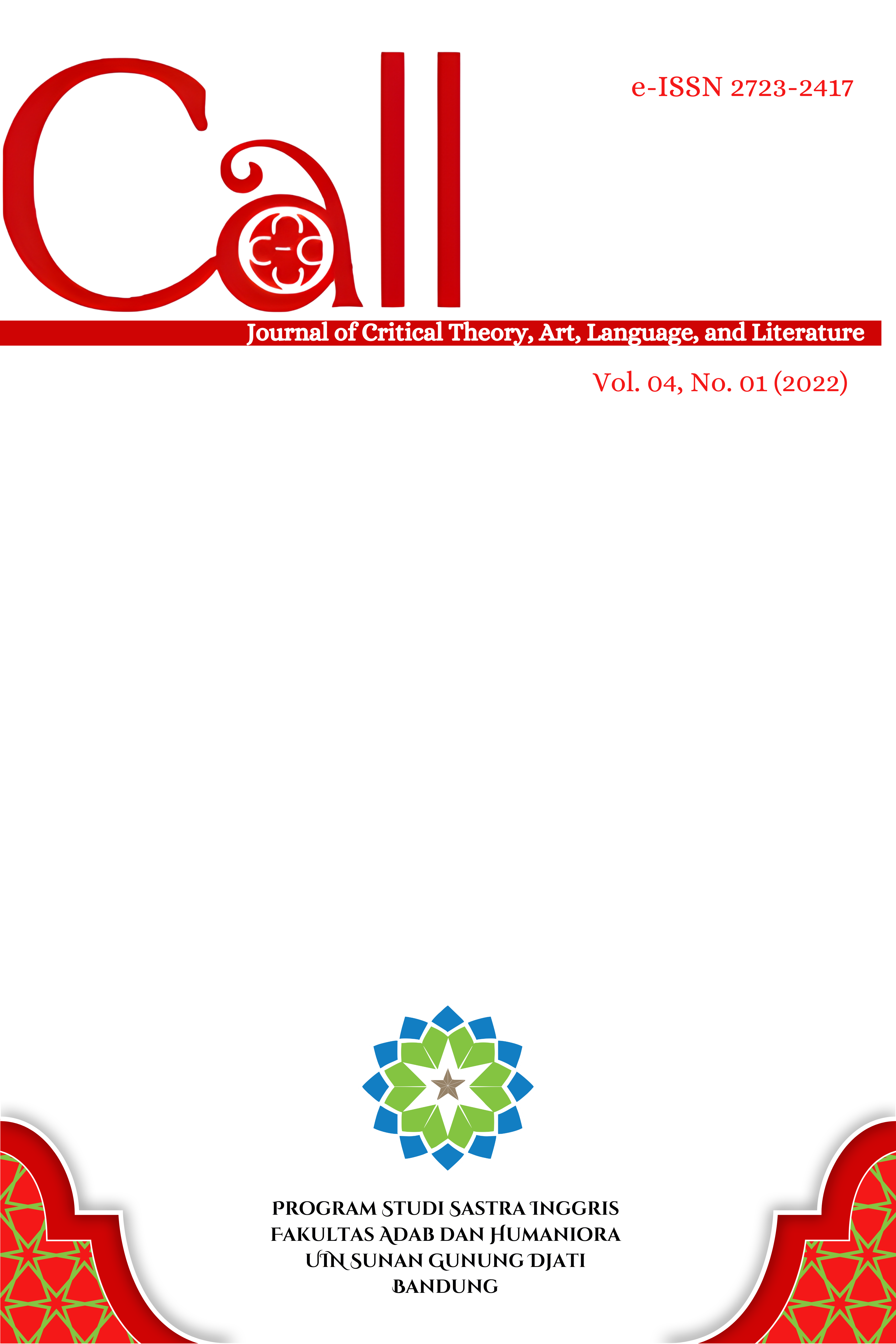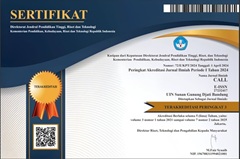WORD FORMATION OF “STONKS MEMES†ON THE INTERNET
DOI:
https://doi.org/10.15575/call.v4i1.14445Abstract
The word formation process is concerned with how new words are produced, whether through the modification of preexisting terms or through total invention, which later becomes a component of the "Stonks Memes" language used on the internet. The two goals of this study are as follows: the first is to identify the slang term's altered meaning in "Stonks Memes," and the second is to highlight the process modifications and changes that appear in the online varieties of "Stonks Memes." This method, which classified data based on morphology theory and used Yule's theory as the primary one for analyzing word formation and morphological system, was descriptive in nature. The word-formation process occurred because of the necessity of the stonk meme format, which required the term to be transformed to convey a hilarious connotation. This study found four forms of word-formation processes, including back-formation, coinage, borrowing, and blending. It is concluded that the word in question was purposely altered by the meme developer to fit in the stonk memes framework, changing both the word's sound and its meaning.
Keywords: word-formation process, slang, memes, stonks, internet
References
Creswell, J., W. (2012). Research Design Qualitative, Quantitative, and Mixed Method Approaches Fourth Edition. America. Sage Publications Inc.
Dawkins, R. (1976). The Selfish Gene. Oxford. Oxford University Press.
DeCapua, A. (2017). Grammar for Teachers: A Guide to American English for Native and Non-Native Speakers. USA. Springer Nature.
Hanif,. (2015). The Analysis of Word Formation of Soccer Terms in The Jakarta Post’s Articles. Jakarta. State Islamic University Syarif Hidayatullah Jakarta.
Immonen, Outi. (2017). Losers and Superior Overlords – Humor Strategies in Nerdy Internet Memes. University of Helsinki.
Kuspiyah, H.. (2016). Analysis on The Use of Slang on Eminem’s Lyrics. English Language Program of STKIP Nurul Huda Sukaraja.
Oktavia, V. (2017). "An Analysis of Slang Words in The Lyrics of Far East Movement Song as The Form of Language Development and It's Used in The Daily Life." Semarang. Sultan Agung Islamic University.
Plag, Ingo. (2002). Word-formation in English. University Siegen. Cambridge University Press.
Shiftman, L. (2013). Memes in Digital Culture. London, England. Cambridge, Massachusetts. The MIT Press.
Wardaugh, R. (2006). An Introduction to Sociolinguistics 5th Edition. The United Kingdom. Blackwell textbooks in linguistics.
Yule, George. (2010). The Study of Language. USA. Cambridge University Press.
Downloads
Published
Issue
Section
Citation Check
License
Authors who publish in CALL agree to the following terms:
- Authors retain copyright and grant the journal right of first publication with the work simultaneously licensed under Attribution-ShareAlike 4.0 International (CC BY-SA 4.0) License that allows others to share the work with an acknowledgment of the work's authorship and initial publication in this journal.
- Authors are able to enter into separate, additional contractual arrangements for the non-exclusive distribution of the journal's published version of the work (e.g., post it to an institutional repository or publish it in a book), with an acknowledgment of its initial publication in this journal.
- Authors are permitted and encouraged to post their work online (e.g., in institutional repositories or on their website) prior to and during the submission process, as it can lead to productive exchanges, as well as earlier and greater citation of published work (See The Effect of Open Access).




